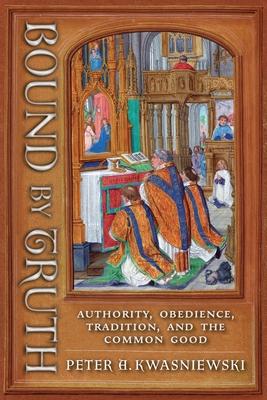At the sixtieth anniversary of Sacrosanctum Concilium, the situation on the ground for Catholics is more chaotic than ever. A liturgical reform, meant to usher in a new age of full churches and ecumenical rapprochement, delivered neither; instead, churches are emptying and closing at an unprecedented rate. Meanwhile, an ancient old rite, grown to maturity in the Middle Ages, encrusted with Baroque pearls, and officially pronounced dead in the 1960s, has made an astonishing return around the world. Tolerated by Paul VI, permitted worldwide by John Paul II, declared free for everyone by Benedict XVI, and most recently put under ban once more by Francis, the Tridentine Mass remains a powerful and polarizing reality in the Church of Rome-an ark of holiness and beauty to the priests and faithful who love it, a belligerent "backwardism" to those who seek its abolition. In this state of spiritual civil war, questions of authority and obedience are never far from anyone's mind.
Bound by Truth grapples with the momentous issues of authority, obedience, tradition, and the common good. Part I, "Papacy, Patrimony, and Piety," addresses the teaching of Vatican I on the pope's universal jurisdiction; the limits of his authority in light of other authoritative principles such as liturgical tradition and local custom; the properly Catholic way to interpret and follow the Magisterium; and the virtue of intelligent, God-fearing, and communally perfective obedience versus its vicious distortions-willful rebelliousness on the one hand, and a blind, thoughtless, self-destructive submissiveness on the other. Part II, "Faithful Resistance," looks at historical examples of prelates who legitimately pushed back against papal overreach; discusses how clergy should navigate unjust episcopal decrees on private Masses, concelebration, the use of the Rituale Romanum, etc.; shares advice and strategies for laity who seek to promote and defend tradition in their dioceses; and draws inspiration from persecuted religious sisters, whether their tormentors were Soviet Communists or apparatchiks of the postconciliar ecclesiastical bureaucracy.
